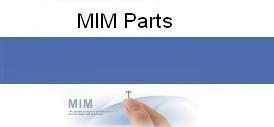Emerging Applications
Drive Demand for Powder Metallurgy
22nd May, 2015
The global market for powder metallurgy parts is projected to reach
US$15.7 billion by 2020, driven by emerging applications and revival in
the global automotive industry.
Powder metallurgy (PM), defined as the science of solid state
sintering, offers benefits such as lower machining costs, elimination of
wastages, material conservation, and uniformity in machined shapes and
dimensions. Powder metal technology finds applications in the production
of automotive and aerospace parts and component. A recovery in major
end-use markets has been driving demand for metal powders and PM parts
since the official end of the 2007-09 economic downturn. Representing
the largest end-use market for metal powders and PM parts, the global
automotive industry influences growth in the market. Demand for PM based
structural auto parts, transmission and engine components, sintered
magnets, and self-lubricating bearings is highly dependent on automobile
production trends.
The inherent qualities of powder metallurgy are expanding the
application scope of PM beyond the conventional automotive market.
Future growth in the market is forecast to come from new emerging
applications in aerospace, construction, and mechanical engineering. The
rapid rate of advancements in electronic and computer components is
likely to generate demand growth for aluminum and titanium-based powder
metals. Additionally, increased investments in renewable energy and the
resulting increase in production of solar panels and wind turbines
offers lucrative growth potential for PM. Although currently in the
experimental phase, nanoceramic powders are expected to play a
significant role in future PM applications. Although PM technology has
been confined to metal powders, the future is expected to witness
increased use of compounds formed using non-metallic elements.
Technological advancements in PM parts manufacturing such as hot
isostatic pressing,
metal injection molding
(MIM) and additive manufacturing are driving opportunities in the metal
powder market. Additive manufacturing has been gaining immense
popularity over the recent years, with numerous application
possibilities being researched and studied. The potential for further
investments in this area will spur demand for metal powders in additive
manufacturing, alongside increase in applications in dental, medical,
oil & gas and aerospace sectors.
As stated by the new market research report on Powder Metallurgy,
Europe represents the largest market for PM parts worldwide.
Asia-Pacific is forecast to emerge as the fastest growing market with a
CAGR of 5.7% over the analysis period.

